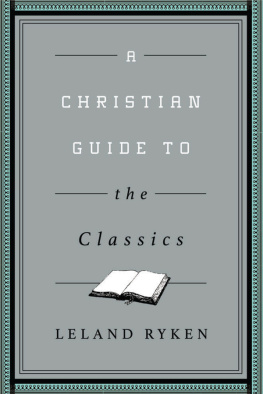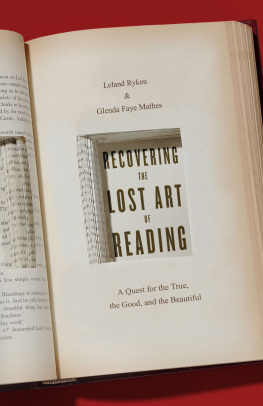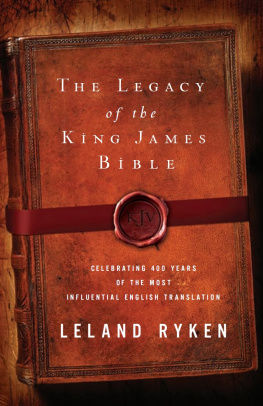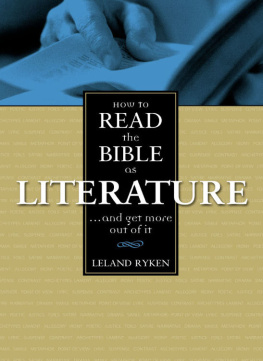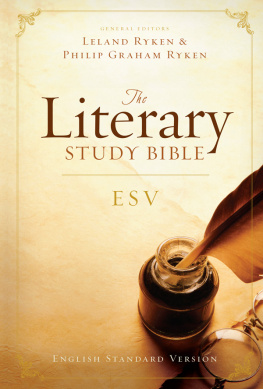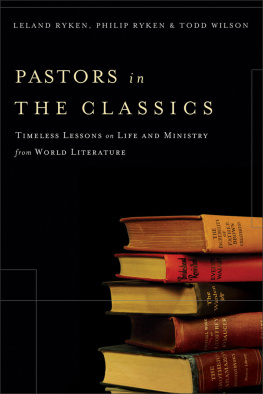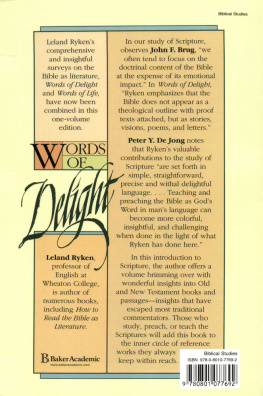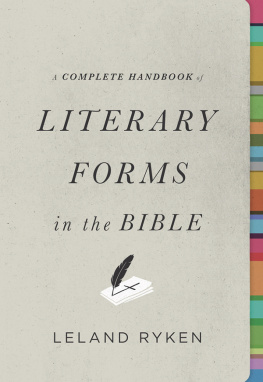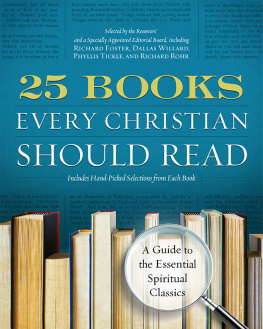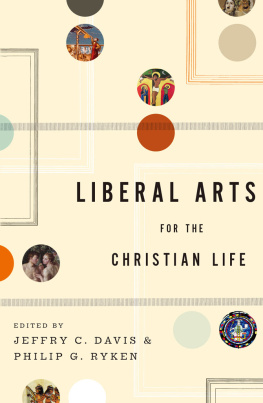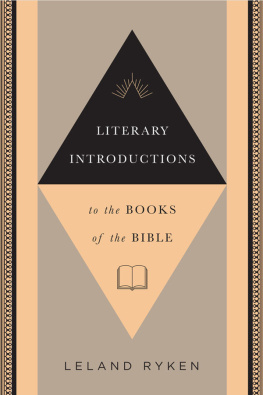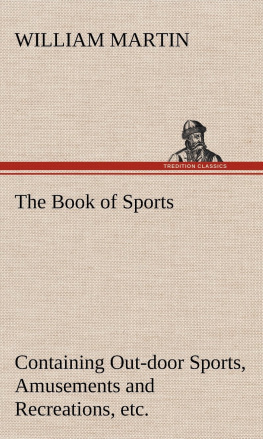Thank you for downloading this Crossway book.
Sign-up for the Crossway Newsletter for updates on special offers, new resources, and exciting global ministry initiatives:
Crossway Newsletter
Or, if you prefer, we would love to connect with you online:
Other Christian Guides to the Classics
Augustines Confessions
Bunyans The Pilgrims Progress
The Devotional Poetry of Donne, Herbert, and Milton
Dickenss Great Expectations
Hawthornes The Scarlet Letter
Homers The Odyssey
Miltons Paradise Lost
Shakespeares Hamlet
Shakespeares Macbeth
A CHRISTIAN GUIDE
TO THE CLASSICS
LELAND RYKEN

A Christian Guide to the Classics
Copyright 2015 by Leland Ryken
Published by Crossway
1300 Crescent Street
Wheaton, Illinois 60187
All rights reserved. No part of this publication may be reproduced, stored in a retrieval system, or transmitted in any form by any means, electronic, mechanical, photocopy, recording, or otherwise, without the prior permission of the publisher, except as provided for by USA copyright law.
Cover design: Dual Identity, inc.
Cover image: Shutterstock.com
First printing 2015
Printed in the United States of America.
Unless otherwise indicated, Scripture quotations are from the ESV Bible (The Holy Bible, English Standard Version), copyright 2001 by Crossway, a publishing ministry of Good News Publishers. Used by permission. All rights reserved.
Trade paperback ISBN: 978-1-4335-4703-4
ePub ISBN: 978-1-4335-4706-5
PDF ISBN: 978-1-4335-4704-1
Mobipocket ISBN: 978-1-4335-4705-8

Library of Congress Cataloging-in-Publication Data
Ryken, Leland.
A Christian guide to the classics / Leland Ryken.
1 online resource. (Christian guides to the classics)
Description based on print version record and CIP data provided by publisher; resource not viewed.
ISBN 978-1-4335-4704-1 (pdf) ISBN 978-1-4335-4705-8 (mobi) ISBN 978-1-4335-4706-5 (epub) ISBN 978-1-4335-4703-4 (tp)
1. Christianity and literature. I. Title.
PN49
809dc23 2015011574

Crossway is a publishing ministry of Good News Publishers.
Contents
This book is a defense of works of literature (and by implication works of art and music and even nonartistic texts like political and historical ones) that go by the name of classic. In our current cultural situation, several distinct groups exist in relation to the classics. One is enlightened non-Christians who value the classics in many of the same ways that Christians value them. A second group is people of liberal (or politically correct) persuasion who have a knee-jerk negative reaction to the classics and try to eliminate them from the publics possession and school curricula. A third group is Christians who value the classics.
In this book, all supporters of the classics, Christians and non-Christians alike, would agree with most of what I say in defense of the classics. We will see, however, that a Christian worldview and outlook supply a few additional arguments and lines of defense. This is why the book is entitled A Christian Guide to the Classics. Christians have a value-added defense of the classics and methodology for assimilating them.
Every art form, discipline of thought, and activity (such as sports) has its classics. In this book, I have discussed the subject in terms of literature because I am a literary scholar, and additionally because this book belongs to a Crossway series of Christian guides to literary classics. Nevertheless, what I say about literary classics has ready carryover to other art forms and disciplines.
To defend the classics requires that we understand what they are. The lay of the land for this book consists of answering three main questions, spread over multiple chapters:
- What is a classic?
- Of what value is a classic?
- How should we read and assimilate a classic?
There have always been misconceptions about the classics, but until recently these were relatively minor. The picture changed when liberal or politically correct advocates wrongly decided that the classics are harmful to society. These false claims need to be refuted. We need to realize at the outset of our discussion that all claims made about the classics are self-revealing of the people who make the claims. The rival positions often say less about the classics themselves and say more about the values and mind-sets of the people who hold the positions. The Christian defense of the classics grows out of the Christian value structure, and attacks on the classics are rooted in the worldview and political outlook of the attackers.
The context in which any defense of the classics occurs today is the contemporary assault on the classics by people of liberal persuasion. They are the ones who have made the classics a life-or-death matter intellectually and educationally by attempting to suppress the classics and keep people from reading them.
I will note in advance that some of the material covered in this chapter will be taken up in greater detail at various points later in this book.
Misconception #1:The classics are irrelevant to us today because they come to us from long ago.
This claim of irrelevance is an expression of what some scholars call the myth of the contemporary. Those who hold this mind-set think everything contemporary is automatically better than what preceded it. Correspondingly, something that belongs to the past is inferior. Sometimes this expands into a presumptive rejection of everything from the past for no better reason than that it comes from the past.
One way in which the liberal establishment has killed the classics is to remove them from course syllabi. About thirty years ago professors and students in English departments started to lose interest in literature and to replace it with other material. A graduate student is recorded as saying that he was bored with Wordsworths poetry but couldnt get enough of the philosopher Heidegger. The result is that in most English courses today, literary texts are barely touched.
The first thing to say is that this viewpoint presupposes that the past holds little value for us today. The issue of how we should regard the past will loom large in later sections of this book, so we do not need to say a lot about it here. At this early point, all we need to do is express disagreement with the premise that the past is irrelevant. Under that umbrella, we can note the following:
- Anyone who looks at the contemporary scene can see that it does not represent an ideal. On many fronts the modern world is in a state of decline. To hold it up as an ideal by which to denigrate the past is preposterous. At the very least, we need to be open to the possibility that taking an excursion into the accumulated wisdom of the past by way of the classics might provide an avenue for bringing order to our present situation.

